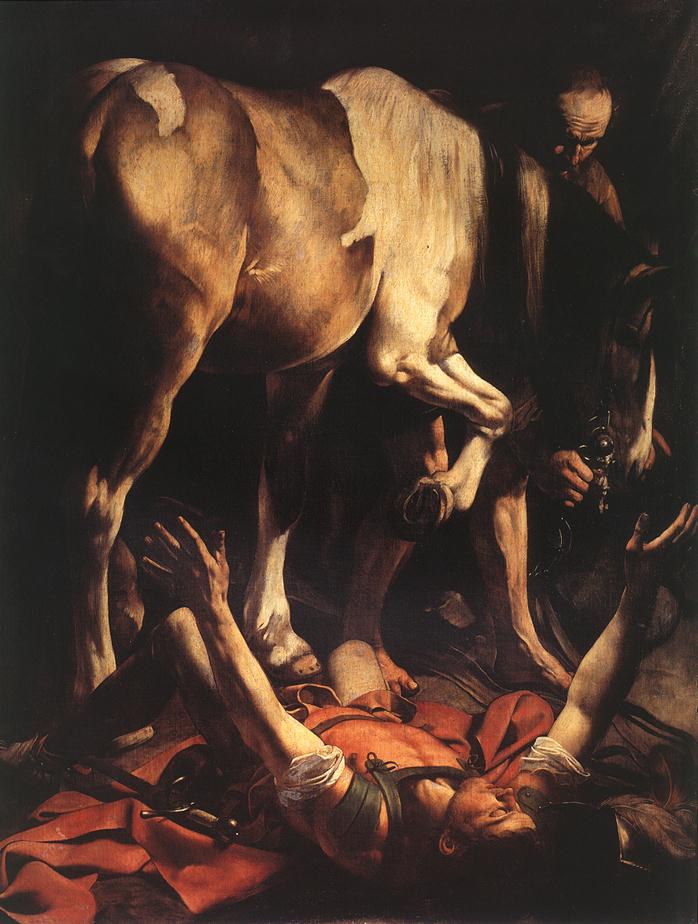Last week on the Feast of the Conversion of St Paul I had in mind to write a post about not only his conversion, but the conversion of the world through him.
Reading his epistles how can one not be totally astounded by the genius of the man? I believe he is one of the most under-rated intellectuals of all time. He really does rank up there with the greatest of philosophers and theologians. Why do I have such an opinion?
First of all, think of it. Within thirty years–just thirty years of Jesus life, death and resurrection this man had formulated the most complete and amazing theology, ecclesiology, soteriology and pneumatology the world had ever seen. Everything is there–at least in kernel form–if not completely explicated–and his recorded this not in a series of theological tomes, but in ordinary letters to ordinary Christians, and he communicated all of this in language which was accessible to the hearers of his time.
He was the C.S.Lewis of his day, but so much greater that Lewis is a midget compared to him.
Not only was this intricate and beautiful theology formulated within thirty years of Christ’s death and resurrection, but it is thorough and integrated.
Of course we attribute this to the inspiration of the Holy Spirit, but also to the natural intellectual genius of Paul himself.
Here is the best part…his genius was eclectic. He lived in an age like ours, where religion was fluid and relativistic. In Greece and Rome the intellectuals prided themselves on their philosophy, literature and ethics. At the same time the people of Rome were engaged in the ancient pagan worship of appeasing gods with sacrifice and divining the future through haruspicy, astrology, ornithomancy and scrying. The empire was awash with all sorts of mystery religions which blended elements of occult lore, esoteric knowledge, spirituality and pagan wisdom. Judaism was a unique culture and religion in the midst of this religious and philosophical marketplace.
St Paul gather us what is best from it all and re-formulates it, by the inspiration of the Holy Spirit, into this amazing religion in which Jesus Christ really does become the fulfillment and completion of all the other strands of religion and philosophy.
He quote the Greek and Roman authors and uses their philosophical vocabulary to get his message across. He uses the truths of ancient Judaism to ground his theology, but he is not bound by them. In fact he continually breaks the old Judaism from the inside out–insisting that the legalistic code was only the forerunner. He also gathers up what is true and useful from the mystery religions–using their language and concepts while correcting and critiquing them for their errors.
This eclectic genius is amazing, open minded and yet discerning, curious yet critical –embracing truth, beauty and goodness wherever it can be found and claiming it for Christ.
I feel passionate about this because in own multi-cultural, whirlwind of a world we can be threatened by other belief systems. We can be threatened by secularism, atheism, modernism, Protestantism and whatever other ism you like. The tendency is therefore to withdraw into a safe place where we can hob nob with fellow believers. That is okay up to a point, but if the motivation is to run away from the challenges of the modern world, then before long that little group will become a sect. You’ll know is is a sect when you can no longer laugh at yourselves and most of all when you spend most of your time attacking your enemies rather than building up God’s kingdom.
St Paul didn’t do that. He strove always to affirm not deny. He winkled out the truth wherever he could find it and used it for his purposes and God’s plan. One also gets the impression that he was, as a consequence, a loner. He claimed apostle status, but argued with Peter and you get the feeling that the other apostles were quite happy to see the back of him when he marched off on his mission from God. I think he was much loved and much misunderstood and was the typical maverick–kicking over the traces, challenging the comfortable, chastising the lazy and venal, tolerating the stupid and caring deeply for those who were suffering.
Finally, he is not only a man of the head. He is a man of the heart. What a passion he had for Christ! What an identification with his sufferings! What a union with the resurrected one!
In the end, it was somehow fitting that he was beheaded. That head that turned the heads of the whole world, that head so brimming with ideas and theories and wisdom and insight, that head so vividly alive and overflowing with brilliance was lopped off, bounced three times for the Holy Trinity and made three fountains that continue to give life to the world, and when the head was gone all that was left for a few long minutes was his beating heart.







Father! that was absolutely beautiful Thank you Doreen Sreckfuss